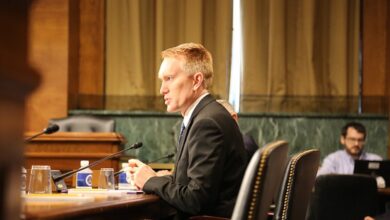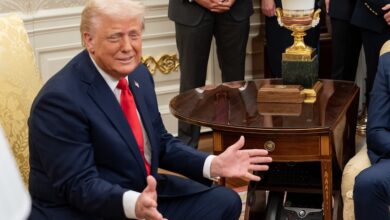These American companies ending operations in Russia
More American companies are ceasing operations in Russia as that country continues to target and kill civilians in Ukraine. McDonald’s, Starbucks, Coca-Cola, and General Electric, are the latest to join the growing exodus.
Dozens of international corporations have already ended operations in Russia after it invaded Europe’s largest democracy.
Pressure has been rapidly growing on the remaining companies with hashtag campaigns calling to boycott companies like McDonald’s, Coca-Cola, and PepsiCo emerging on social media.
“Our values mean we cannot ignore the needless human suffering unfolding in Ukraine,” said McDonald’s President and CEO Chris Kempczinski in an open letter to employees on March 8.
The burger chain said it will temporarily close 850 stores but will continue paying its 62,000 employees in Russia, and its Ronald McDonald House Charities will continue to operate.
READ: Corporations still in China despite genocide
McDonald’s said it sympathizes with its Russian employees “who have poured their heart and soul into our McDonald’s brand,” and said it’s impossible to know when the company will be able to reopen its stores.
“The situation is extraordinarily challenging for a global brand like ours, and there are many considerations,” wrote Kempczinski.
The fast food giant worked with hundreds of Russian suppliers and served millions of customers every day.
However, McDonald’s had drawn severe criticism for staying silent on the war, due to its relatively large Russian footprint.
Its restaurants in Russia and Ukraine account for 2 percent of its company sales, roughly 9 percent of its revenue, and 3 percent of its operating income, or around $2 billion last year.
“In the thirty-plus years that McDonald’s has operated in Russia, we’ve become an essential part of the 850 communities in which we operate,” Kempczinski wrote in his letter.
“At the same time, our values mean we cannot ignore the needless human suffering unfolding in Ukraine,” he said.
About 84 percent of McDonald’s in Russia are directly owned by the company, while the rest are operated by franchisees.
McDonald’s has also temporarily closed 108 restaurants that it owns in Ukraine, allowing employees to take shelter from Russian bombing. It continues to pay those employees.
Meanwhile, McDonald’s said it has donated more than $5 million to its employee assistance fund and to relief efforts.
It has also parked a Ronald McDonald House Charities mobile medical care unit at the Polish border with Ukraine, while another mobile care unit is on its way to the border in Latvia.
Amazon said on March 8, that the company’s cloud computing network, Amazon Web Services, would stop allowing new sign-ups in Russia and Belarus.
General Electric said in a Twitter post that it was suspending its operations in Russia except for essential medical equipment and support for existing power services in the country.
Other American food chains have taken much of the heat on social media for their business in Russia.
Yum Brands, the parent company of KFC and Pizza Hut, said Monday that it is donating all of the profits from its 1,050 restaurants in Russia that account for roughly 2 percent of its systemwide sales to humanitarian efforts and has also halted new restaurant development in the country.
Burger King said it is redirecting the profits from its 800 Russian stores to relief efforts and will donate $2 million in food vouchers to Ukrainian refugees.
Coca-Cola announced that it was suspending its operations in Russia, but offered few details.
Coke’s subsidiary, the Switzerland-based Coca-Cola Hellenic Bottling Co., owns 10 bottling plants in Russia, which is its largest market, of which its parent company has a 21 percent stake in its bottling operations.
Starbucks offered a weak response to the invasion when it announced it was only donating profits from its 130 Russian stores owned and operated by its Kuwait-based franchisee Alshaya Group to humanitarian relief efforts in Ukraine.
After criticism, the company reversed course and said it would temporarily close those stores on March 8, promising to continue to pay Starbucks’ 2,000 Russian employees.
“Through this dynamic situation, we will continue to make decisions that are true to our mission and values and communicate with transparency,” said Starbucks President and CEO Kevin Johnson said in an open letter to employees.
–Wire services






